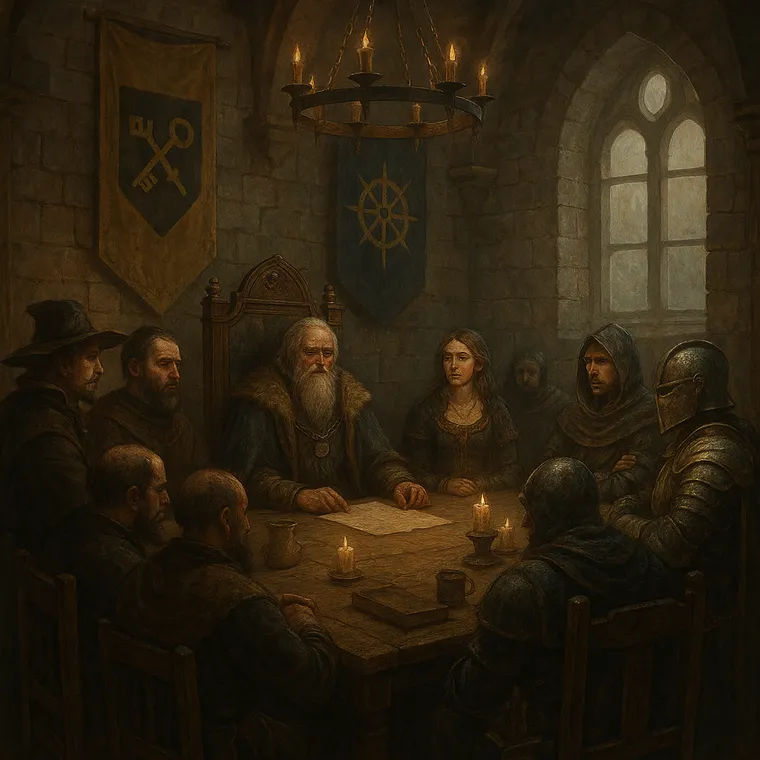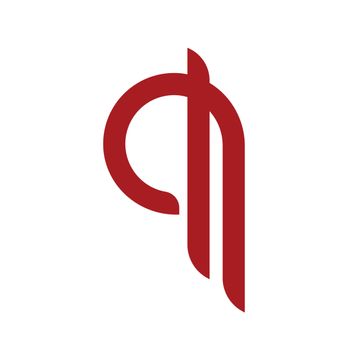Worker societal organisations in the coming age of AI and Alt-right politico-capitalism.
Are you a ‘Worker’, a ‘Soldier’ or a ‘Service’? Are your politics defined by cultural or economic circumstances? What is your ‘Tribe’? What is your political affiliation? These are questions that will shape how people will organise in the future world of work.
The history of workforce organisation has something to say about how society might cope with the forces that are engulfing the modern world. In the past, a manual or service worker will join a Union, a soldier will join the Military, and an artisan will join a Guild.
This article explores the path and choices that people might consider for the future.
Lessons from the Middle Ages
Most people were either a serf or a soldier in the Middle Ages until the advent of Guilds. Guilds played a significant role in shaping the economic and social landscape of medieval and Renaissance Italy, particularly in cities like Florence. The history of guilds dates back to the 12th century and continues to have major influence in certain sectors of the economy even today.
Origins and Structure
The first documented guild in Florence was the Arte di Calimala, a cloth-merchants' guild, mentioned around 1150. By 1193, seven corporate bodies had formed, each electing a council with members called "consoli". These early guilds laid the foundation for the complex guild system that would develop in the following centuries.
Political and Economic Influence
Guilds in Italy, particularly in Florence, wielded significant political power. In 1266, the consuls of the seven major guilds became the "Supreme Magistrate of the State"
By 1282, three "Priors of the Guilds" were elected, with powers only inferior to the Chief-Magistrate of the State
Economically, guilds controlled various trades and arts, including merchants, bankers, artisans, notaries, manufacturers, and shopkeepers. They played a crucial role in accelerating Florence's economic growth and fostering specialization in trades.
Legacy
Despite their eventual decline, Italian guilds left a lasting impact on the economic organization of Europe, contributing to the transition from feudalism to embryonic capitalism. Throughout modern Europe there are now many Guild variations, some secret and some not so secret and some termed secret societies like the Masonic movement. The financial sector still contains several guild-type organisations many of which are secret and have enormous political influence.
THE MAFIA
The Mafia is neither a guild nor a union but it is another way of organising. It is an organized crime syndicate that has historically exploited both guilds and unions for its own gain. The Mafia, particularly in the United States, has a long history of infiltrating and controlling labour unions to generate profits through various illegal activities. Crime syndicates and crime cartels exist in many parts of the world today (not just Italian, but Irish, Russian, Jewish, East European and S.American) and their ‘workers’ can mainly be classified as ‘soldiers’. The current Russian government could be classified as a national crime syndicate of oligarchs.
Some key ways the Mafia has used unions include:
- Extortion: Threatening strikes or slowdowns to extract payments from businesses.
- Embezzlement: Stealing from union funds and pension plans.
- No-show jobs: Placing Mafia members in paid union positions without requiring work.
- Bid rigging: Colluding with companies to manipulate contract bids.
- Controlling hiring: Using union power to place Mafia-affiliated workers in key positions.
This exploitation of unions by organized crime is considered a form of labour racketeering, which is particularly prevalent in the United States compared to other countries. The Mafia's involvement in unions has had significant political, social, and economic consequences throughout the 20th and 21st centuries.
From the point of view of its members, crime syndicates provide many of the ‘benefits that joining a company or guild or union such as money, protection, a rules structure and familial belonging.
GUILDS V UNIONS
Guilds are organizations that typically represent independent contractors or freelancers in a shared trade. They focus on:
Setting standards for goods produced by an industry
Enforcing quality standards
Protecting members from exploitation
Providing financial support
Serving as mediators for their members
Improving members' skills and verifying their qualifications
Unions, on the other hand, primarily represent employees of specific companies or industries . They concentrate on:
Negotiating better working conditions and fair wages
Advocating for member health benefits
Providing financial benefits like insurance
Representing workers in grievances against employers
Engaging in collective bargaining with employers
POLITICAL PARTIES
Are political parties (and politicians), as we know them, ready for extinction? Many people these days feel ‘unrepresented’ and ‘unprotected’ both in a cultural sense and in the workplace. What use are they? Why should I join a Political Party when the tangible benefits (and voice) I get from a Union, Guild or even a Company surpass those provided by political affiliation?
National rules and laws (set by politicians) are routinely ignored by transnational and international corporations which have their own ‘internal’ rules and procedures that govern how they operate irrespective of the ‘workforce’ or any government. The benefits they provide apart from remuneration also include most of the benefits that a Union might provide and certainly more than a political party could provide.
What does this mean for the future of political parties if there is no benefit to be had from them and politicians have no significant influence or power to mediate between a person and their paymasters?
THE FUTURE
Depending on the type of work a person does and the way it is remunerated then it’s clear that, in the future they will join a Union, a Guild or the Military. Of course, in some parts of the world joining a crime syndicate is becoming essential.
AI is changing work rapidly and this will change how societies and nations are ‘organised’. Political parties do not belong to this future,


